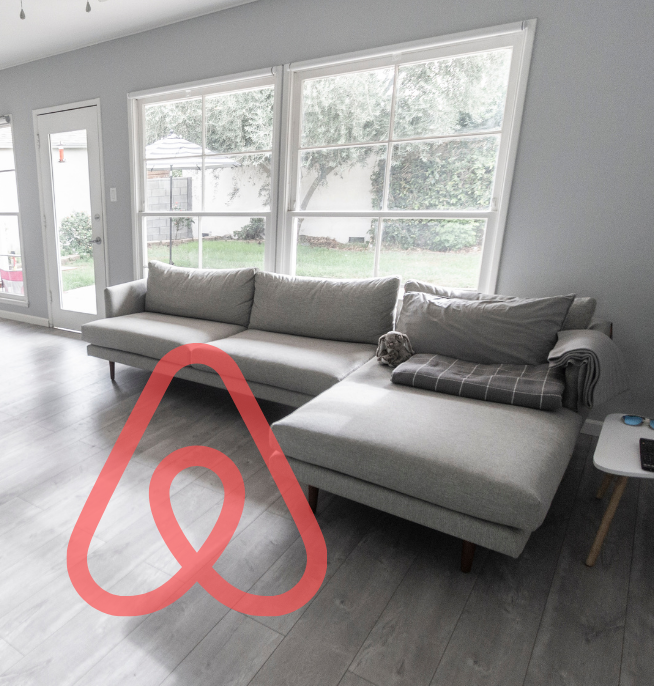Compelling Conversations Versus Convincing
The inspiration for this post is from recently interviewing vendors and first-hand seeing where people are dropping the ball in discovery calls. Plus I’ve been doing lots of sales training with clients lately and want to share a framework designed to help master discovery calls. This post is not theoretical, it’s practical with the core idea being that it’s better to have compelling conversations than trying to convince people to buy your stuff. Why is that important?
Convincing is hard work.
Compelling conversations flow with ease.
First, I’m going to break down the sales conversations I’ve had with potential vendors starting with their flops.
Four out of the five vendors did nothing to make me feel heard, seen, or understood in the discovery calls. They did listen but not actively, they rushed to get to the part where they could talk about their services and sell to me.
Three out of the five vendors failed to listen to my buying signals. I literally spelled out my concerns and what would sway my decision and they went ignored. I was left with a feeling of uncertainty by those three, they did a lot of convincing but I wasn't convinced they got me. The one vendor who did actually repeat where I am, where I want to go asked what would take it a no-brainer to say yes to their proposal. This caught me off guard with the question so I proceeded to blurt out my heart and soul. This was brilliant, until that wasn’t addressed on the call and it wasn’t addressed in the proposal.
The same three vendors failed to ask good questions, thus failing to get to the intel that would help them sell to me. When you are doing the selling, you need to be more certain that you can deliver than the prospect is uncertain the you can’t help them.
All the vendors failed to read my signals in terms of my personality or profile. I was asking questions indicating that I’m an action taker. I want to know are you picking up what I’m putting down, are you going to get me to where I want to go and when can we do this thing. Instead four of the five talked very thoroughly through their processes which as a non-blueprint type person bored me and I lost interest. I don’t care about your processes, I care about how you are going to get me over the bridge and have my back. Know your audience!
I have no doubt that any one of the vendors are capable and good at what they do. Getting the sale requires more than that. It also won't hurt to get someone’s name right - Sian is a tricky one but a quick Google search will tell you how to pronounce it rather than repeatedly calling me Cyan or Sean after I’ve corrected you.
Anyway, my tip for those vendors and for you reading is to map out your discovery calls and treat them as care calls. And I’d love to share a framework to help you shape compelling conversations versus convincing in your discovery calls.
Framework for Mastering Discovery Calls
I appreciate there are a bazillion sales books out there, hundreds of programs, courses and I am sure there are great ones. I’ve also read half of those books but I like simplicity so I’m going to share what works for me and my clients. Here’s the framework for a great discovery call.
1 Lay it all out.
Once you've established rapport, let your person know what you aim to do in the call, what's in it for them. No surprises like a dentist who just starts drilling.
2 Ask good questions.
Questions are going to get the intel you need to make a sale. It's optimal to ask between 11 to 14 questions per call and this will directly correlate to your sales call success.
Here's a quick tip which I see a lot of people get wrong. The reason that someone has reached out to you is because they have a pain point. Your question will help you get to the root cause of the problem. There is a different between pain points and problems.
Pain: a business doesn't have enough revenue
Problem: they aren't making sales because their website isn't converting
By articulating their pain better than they can, they will believe you have the solution (Bill Glazer). Creating relevance to your solution is showing how you will solve the problems. This is what you have to align with, not thinking about what you're selling.
3 Say it back to show you’ve understood
If you've read 'Never Split the Difference' by Chris Voss, you'll know about mirroring techniques that the FBI use in negotiations. Repeating back what you've heard will show the person that you are really listening so engage in active listening techniques.
When I'm in a sales call, I detach from the outcome and what I have to offer completely. The time is entirely the prospects and your only job is to listen and understand.
4 What is their ideal outcome?
This is where they are now, this is where they want to go. You want them to bring it to life and paint a picture of what will that look like for them when their problems have been solved. Imagine it with them, step into it. This is where you get into the drop zone!
“Step into the conversation your customer is having” - Robert Collier
5 Get to their why?
This doesn't need to be philosophical by the way, it can get that way and personal. Here you want to dig into why it's important that they solve this problem now and establish a deeper connection. All the way through you are thinking “how can I help?”
6 Offer value
If you can, try to offer some value to the person on the call. Help them to solve one tiny problem to take one step towards their ideal result. Because whether they buy from you or not, people will always remember how you made them feel. Your goal is to get a thank you.
And if you can, why wouldn't you want to add value or help someone. This is why I think of sales calls as care calls. I really don't care about the sale at the end but I do care about how I make someone feel when they meet me.
7 "Close"
After all the six steps are done well, you have truly listened, and truly care then the transition into your offer should feel effortless. You've identified their pain, the root cause problems and you can align your services to a good-fit solution.
It’s your duty, your calling to help your prospect to sign up to your program or service if it can help them, you can do that knowing you’ve offered value all the way up to here.
If the sale isn’t right, then provide them with another recommendation.
What's really important at this stage is to close out with certainty. Give the person the "uber effect," in other words let them know exactly what happens next and when. In sales, the person with the most certainty wins and that's why I do a training with clients called 'selling like a surgeon'.
I hope this framework has been helpful. Of course there's lots to do to take this framework for discovery calls and turn it into a useful and effective sales script for your business. That's exactly what I do in 1:1 coaching with clients as one size doesn't fit all. Along with teaching how to read a person so you know if you should go heavy on process or specifics or whether they're an action taker.
If you'd like to read more about marketing and sales, grab the guide to Marketing Momentum over here.



